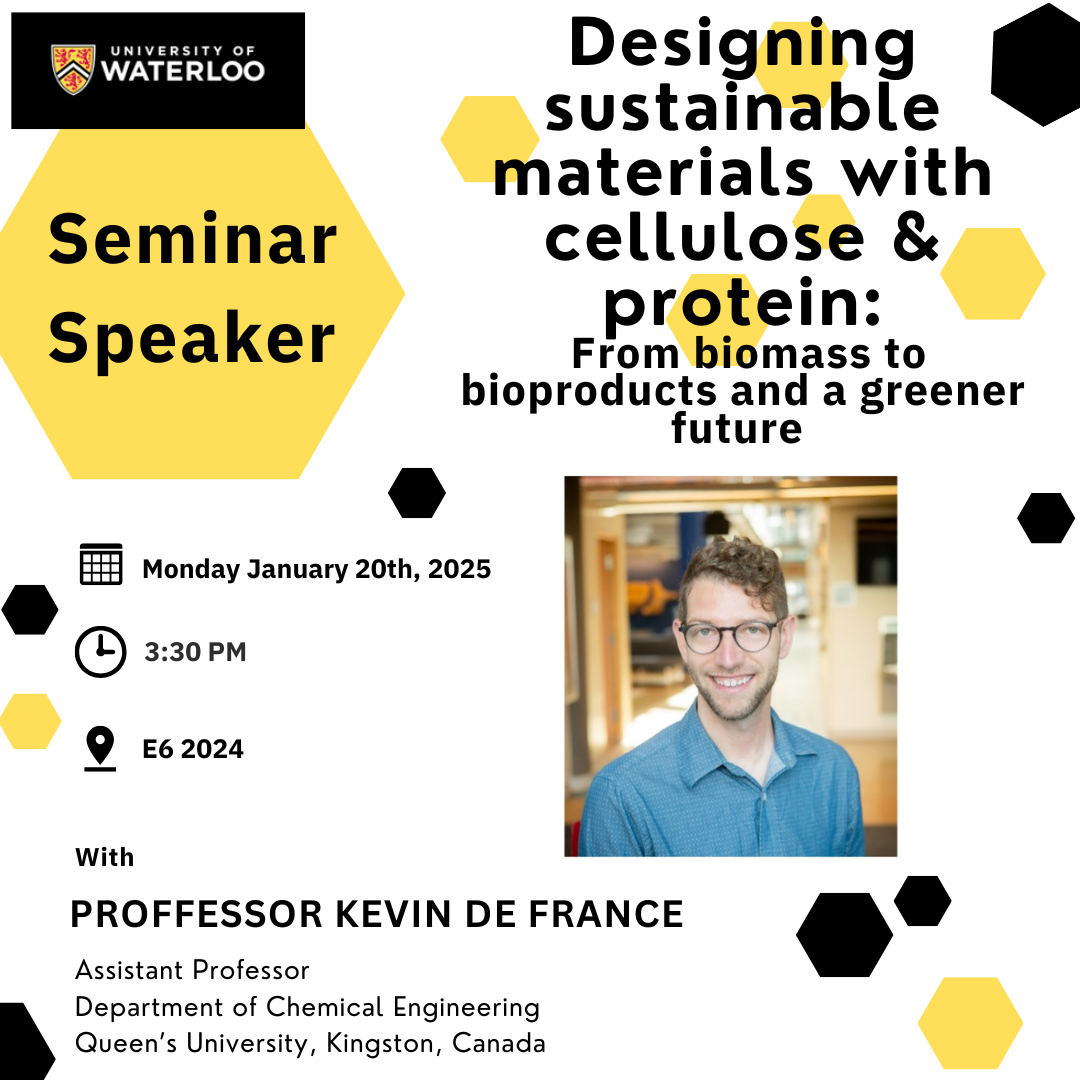Seminar Speaker Series

Biography
Dr. Kevin De France is an Assistant Professor in the Department of Chemical Engineering at Queen’s University, Kingston, Canada. Since May 2022, he has led the Natural Nanocomposites Lab, which focuses on the development of sustainable materials from natural sources such as cellulose and protein. The work in the De France Lab is highly interdisciplinary, spanning materials chemistry, engineering, and biotechnology, with the end goal of replacing petroleum-based products with high-performance renewable materials in the agricultural, packaging, water treatment, energy systems, and biomedical sectors. Prior to his appointment at Queen’s, Kevin worked as an NSERC Postdoctoral Fellow at Empa – Swiss Federal Laboratories for Materials Science and Technology, in Zurich Switzerland (2019 – 2022). Kevin earned both his Bachelor’s (2014) and Ph.D. (2019) degrees in Chemical Engineering from McMaster University.
Abstract
The development of high-performance sustainable materials as a practical replacement for non-renewable products represents one of the most significant challenges of the 21st century. To this end, the primary research interests of our group surround the rational design and assembly of functional materials from a variety of biomass sources. Prominent examples of this include the extraction and assembly of materials from canola meal (supported by an inter-institutional $3.2M NSERC Sustainable Agriculture Grant, which Dr. De France leads) and microalgae. A typical workflow in the De France Lab encompasses the synthesis and modification of nanomaterial ‘building blocks’ from cellulose or proteins – two of the most abundant natural polymers on Earth. We then utilize these building blocks (for example:
cellulose nanocrystals and protein nanofibers) in the bottom-up fabrication of materials such as hydrogels, aerogels, emulsions, and films for a variety of applications. An emphasis is placed on understanding and leveraging structure-function relationships between individual building blocks and fabricated material assemblies in order to improve key performance metrics such as mechanical strength, adhesive potential, and structural ordering.
Taken together, the design and engineering of sustainable materials from biomass represents a significant milestone towards a collective greener future.